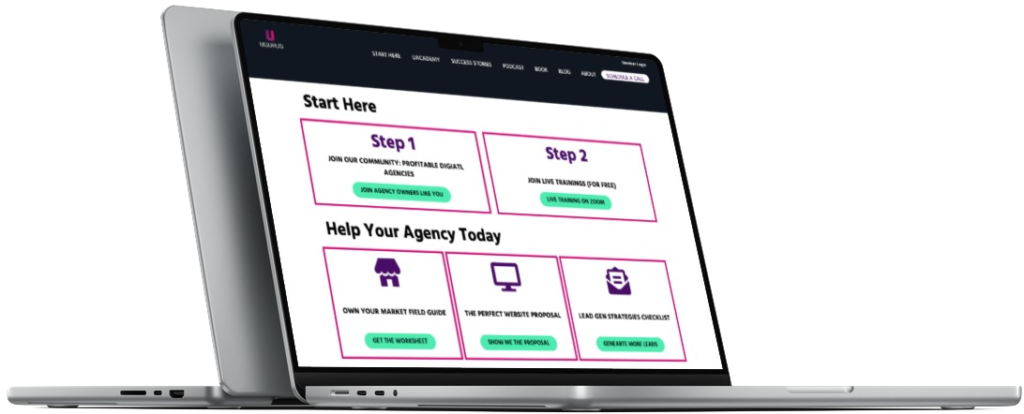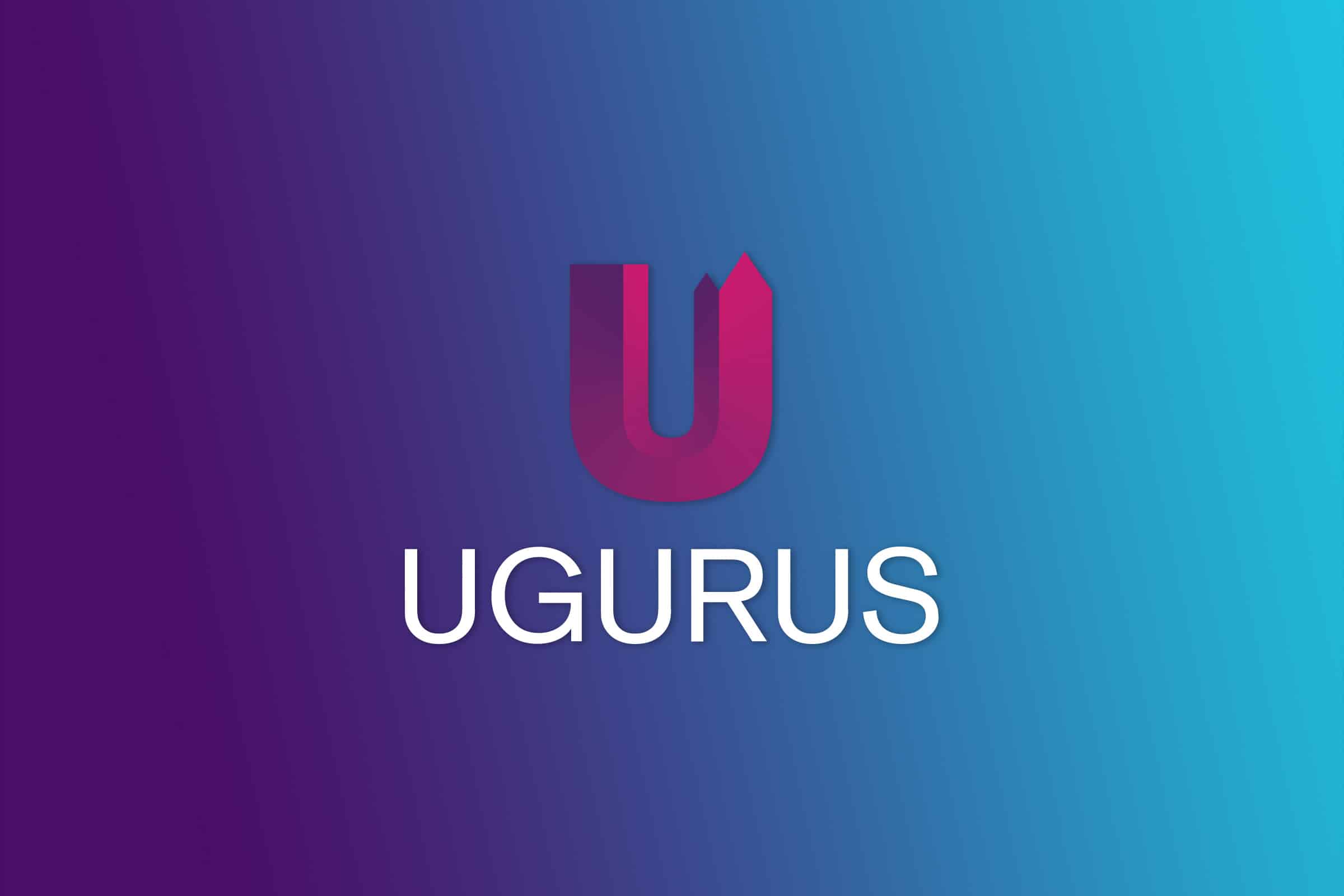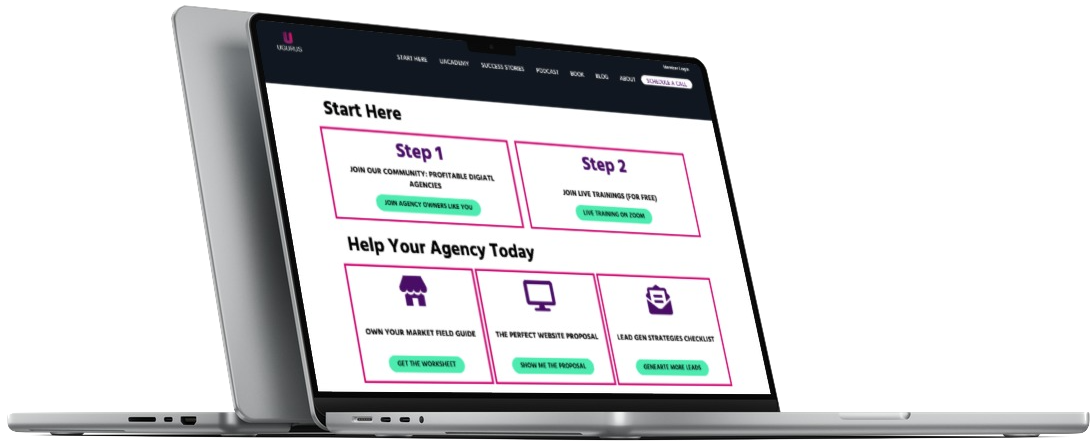Founder and CEO of Commerce Kitchen, based in Denver Colorado, Tynan Szvetecz sits down with me to discuss his culinary adaptation to web, continuous learning, Kanban, strategic forecasting, and the grinder movement.
Tynan started Commerce Kitchen in 2003 with the goal of “creating a technology company that did what the hospitality industry was so successful at.” Namely, to bring every team member together to build something that gives the customer “a new experience that is memorable and something they want to tell their friends about.” After touring us around their remodeled firehouse in Denver, Colorado, we sat down to talk about what brought Tynan and Commerce Kitchen to where they are today.
You can find more information about Tynan Szvetecz and Commerce Kitchen by visiting their blog and following them on Facebook and Twitter.
Video Transcript
Brent: I’m Brent Weaver and you’re watching uGurus, the most watched web series to become a more profitable and in-demand web professional. Today I’m hanging out at Commerce Kitchen with their founder and CEO, Tynan Szvetecz. Welcome to the program.
Tynan: Thank you. Good to be here.
Brent: So, Tynan, where did you get your start?
Tynan: Well, we started 11 years ago. It was really just me programming in a basement and learning a lot of hard lessons. My background is kind of interesting. I went to cooking school, I went to music school, I became a sommelier. So I’ve got this diverse background, and coming into technology was a little bit more accidental, so it evolved in an interesting way.
Brent: So a cooking background. So is that where the kitchen aspect of commerce comes from?
Tynan: Yeah, you got it. What we wanted to do was create a technology company that did what the hospitality industry was successful at. You go into a restaurant, and you order a meal, and you have an experience. If you have a good experience, that was created by a huge amount of people on the back side trying to come together to make that happen. You’ve got the back of the house, and you’ve got the front of the house, and you have the people that are greeting you at the door, you have the dynamic between the expediter who’s trying to make sure the food comes out of the kitchen properly.
That type of idea about how you run something to create a really good customer experience for me it was revolutionary to bring to technology. I did study computer science back in college and so when I was able to kind of bring those worlds together is when we really started to get our footing and it’s something we believe passionately about and we do a lot of training on in- house.
Brent: When you guys started out was the intention to create what seems like a big hustling agency. You guys got a lot of activity going on here.
Tynan: Yeah, that was never the intention. I think that always ends up being sort of a byproduct. The intent was, at the end of the day, to do something of real value for our clients. If you go back to the food analogy, you don’t just want to serve whatever is interesting or is going to make them full. You want to give them a new experience that’s going to make it memorable and exciting and that they’ll want to tell their friends about. So for us it was always about delivery and quality and that’s part of what our core mission is, is we go into our client projects and we’re really trying to vet what type of software or marketing campaigns that we can bring to them that are going to transform their bottom lines.
So we do a lot of business analysis, and that type of quality and attention I think is what has allowed us to grow, especially in the last three years as we’ve gotten very good at it. It’s been transformative and it’s exciting because you believe in what you’re doing for your clients. We’re people who like to believe.
Brent: Very cool.
Tynan: Yeah.
Brent: Who is a typical customer for Commerce Kitchen?
Tynan: Typical customer is difficult. I think it’s more of a profile. We’re really looking to partner with individuals in their organizations, organizations as a whole, who are looking to do something different. Historically they might’ve been very successful in their world offline and want to bring that success into an online world.
But there’s sort of a spirit of change and improvement and adventure of having your own iterations in your business that we can tap into that same sort of philosophy and I think that’s really where the key fit comes in and that can be transportation, we’re doing a lot of healthcare work, engineering support, e-commerce support. It really crosses a lot of spectrums but it’s really that psychological profile that is interesting to us.
Brent: What’s the makeup of Commerce Kitchen right now in terms of size of team and overall project bandwidth?
Tynan: Absolutely. It’s an interesting thing that we’re doing here. We’ve got sort of three core focuses. We’ve got a marketing and analytics team and so those are often creating complex marketing strategies and those can be entirely online. They can blend in the offline event world. We’re doing a big project that is just getting released for the Colorado Secretary of State in partner with the Governor’s Office to bring open data to the broader developing community and build apps that are going to help the Colorado business community achieve their goals better. That is very much sort of an integrated marketing and technology project. That team is really headed up by three or four individuals that spearhead that.
Then we also have our software development engineers, and we’ve got six to eight engineers at any given time that are dedicated to projects full-time for a client building out software in Ruby on rails or PHP, doing, again, a lot of interesting healthcare work, physicians at Porter Hospital, the assist groups, some really fun, next generation healthcare organizations that are looking to take advantage of these technologies.
Then our third sphere of expertise are the WordPress, brand presence, brochure, marketing websites that companies put out there to get traffic, let the world know what they do. All three of those really orbit around each other and orbit around the same client so that we can provide end-to-end service with whatever the clients are working on.
Brent: You mentioned hospitals, government, companies. How do you guys typically acquire new clients? What’s the sales strategy?
Tynan: Sure. Our big thing is, first of all, referrals has always been a huge part of how we got here, but what we’re doing now is something much more sophisticated and we’re really excited about it. We’ve wanted to kind of capitalize on this idea and the strength we have of going in and educating and doing a lot of diagnosis. We’re spending a lot of time upfront and we’re not charging our clients for it. It’s part of our own vetting process.
At the end of the day, we want to make sure that the software features they want, or the marketing campaign that they want is really going to transform their bottom line in some way. So we’re going in and we’re saying, look, do you want to add a new service or product? Do you want to use technology to do that and is it going to increase your revenue? If so, by how much? Let’s get a number on that. Or do you want to reduce your cost by bringing automation? Do you want to be able to get more efficient? If so, let’s put a number on that. That can be very complex and it could be broken down in a lot of different ways.
The third core thing is going in and reducing risks on the compliance side, especially when you’re looking at things like HIPPA. There’s a lot of opportunity. This is a very analog industry-healthcare-that is now really trying to come up to date with technology, and so making sure that people are not making critical mistakes, that data’s not getting lost, that data entry errors are not causing problems, and really creating a lot of test-driven development to make sure that sensitive healthcare data goes to the right place at the right times. It really reduces the risk, and there’s a very strong bottom line component to that as well.
So those are the three things that we like to look at as part of our diagnostic process, and that we see a lot of clients are attracted to because for them it helps them figure out their own scope of work much better. Then they can go to the CFO and say, look, this is how much money we should invest if we want to solve this particular problem or release this new service, and you get a much better sense of what that return will be for the organization, and then everybody’s happy and at the end of the day that’s what we want.
Brent: So for your diagnostic you look at that as kind of a discovery with the customer.
Tynan: Yeah.
Brent: Are you guys charging for that work or is that just like a….
Tynan: Yeah, we’re not charging for the work but we are very careful about how we engage in that relationship. We want to be sure that it looks like it’s a good fit, that the client has a need, that it has a culture, and that psychographic profile mumbo jumbo that everyone talks about. It does apply in this case. We do a lot of work upfront to make sure that we think that client is a good fit.
But we want to go in and we want to build trust and we want to show our expertise, so we don’t want to charge for it out of the gate because our services can largely be fairly expensive, especially once you get into the dev component of what we do. We want the client to really believe that that expense is going to be a productive expense and know exactly what the line item costs are associated with it. So we’re willing to put in that time upfront to get that trust.
Brent: Any concrete idea in terms of your project range, like what you guys typically do?
Tynan: Well, as far as implementation on marketing, that has evolved. When we first started-we’ve been doing this for a long time- marketing was, inbound marketing especially, was very SEO- centric and that industry has evolved, and it’s morphed, and it’s changed. The algorithms have updated and then you get into this whole space where Google’s on its blog telling everyone that it’s updated its algorithms six times in a month.
But when you really look at how often the rankings have shifted, they’re updating it two, or three, or four times a day and it becomes a game of not chasing the technique or the algorithm, not chasing the AdWord strategy, not chasing the social media strategy, but actually going back to some of the business basics about how you represent yourself as a whole and what your company mission is and how you manifest that on search, and on your search campaigns, and social media, and making it a much more global effort for your entire organization.
That is definitely a way that that’s evolved and on our marketing campaigns we’re really going in and we’re trying to help companies evolve their culture of how they present themselves to the world. So that’s one thing no the marketing side. On the development side, we’re doing a lot of fun stuff. We’ve got anything from data processing, pulling in lots of data streams, and you get to analog industries that are using PDFs still or they’re faxing each other stuff, then you might have a CSV export over here and then another part of the org might actually have some HL7 API type of capability for their healthcare data.
You need to bring all those into one system and you need to be able to put it in a no sequel layer, whatever it’s going to be, so you can run fast queries off it. We do a lot of analytics development using techniques like that. Those are some of the more interesting things we’re doing these days.
Brent: Cool. Now, 11-year history.
Tynan: Yeah.
Brent: Has there ever been a moment where things weren’t looking so good?
Tynan: Yeah, absolutely. I guess it would’ve been about four years in, and this is part of my personality and for better or for worse it’s really important to me to understand very deeply different areas of what we do as a company. It’s also part of why I got really deeply into wine and food and all these other things. I’m just fascinated by the world. So I brought that to the business but sometimes I’ve gotten in too deeply into certain areas and haven’t been able to kind of blow up and look at the big picture of operating a business successfully.
So I guess the way I would refer to that is my learning curve with trying to separate being really good at delivery and focusing so much on delivering a good product that you forget about growing the rest of the business. You can’t just subsist on referrals as you have partners that get brought in and you have more staff that you’re working with. You need to learn about these other things. You need to learn about operations. You need to learn about process, and sales, and marketing of course is one of those very scary words to computer programmers and delivery people, like I am and like we are. We think sales people are very strange. So we had to find a way to bring our culture and our true spirit of education and diagnostics into the sales process. But before we figured out how to do that it didn’t look so good.
We had a moment where we just weren’t picking up clients at the rate we needed to and were losing some for various reasons. That was right as the economy started to crash, and it was a moment of: do we do this? Do we do something else? It was a real reality check. I came out of that sort of at the bottom of the trench there, refreshed, renewed, recommitted to learning all the bigger things that I needed to learn about business. As we’ve talked about, I just didn’t have formal training before so I’m learning on the fly. I had to get much better about asking questions and asking for advice, getting mentors, and that was really a pivotal thing for us.
Brent: What daily practices have you kept up with that have gotten you to where you are today?
Tynan: I love that question. I think that’s great. I think that’s been a really critical component of success for our entire executive team. We’ve got a pretty good system. We use [CONBON] quite a bit for our personal day to day tasks on the executive team and it allows us prioritize what we need to do at the beginning of the day. There are some interesting things outside the realm of conventional business thinking that have made a really big difference. I’ll give you some examples.
I do a little bit of a quick journaling at the end of the day and I just jot down three things that I’m grateful for that happened during the day, people that I’m grateful for having met and talked to, and I’ll write a little bit about whatever those things were. When you’re leading a company, when you’re an entrepreneur, you’re responsible for people’s livelihood, for their health insurance, and their payroll, and just their happiness. It’s not just foosball, and Ping-Pong, and the beer keg.
It needs to go into a much deeper place than that and I found that focusing on the positive things has been really critical to my perspective and that’s a type of leadership that I think permeates through the rest of the organization and we try to encourage our people to think about those things in the same way and also express our gratitude to our clients. I think that type of daily activity is a little bit intangible but has been really, really terrific.
Brent: What do you think you’re best at?
Tynan: Oh, that’s an outstanding question. I would hope that I have developed a lot of skill with listening and putting in that great expertise of the folks that we have now. Our staff, they’re just incredible. They’re brilliant, and they are participating in making things better every day for our company and we’ve pulled a lot of…in software development we run real strict scrum style of project management but we brought some of those attitudes into our company as a whole in our marketing division.
One big thing there is the idea of a retro. We do a company- wide retro once a month and everybody gets to write down…you got a happy face column, you got a frowny face column, and you’ve got your puzzled column and everybody gets to write whatever’s on their mind as far as what happened over the course of this month. We do that for our whole dev team once a week as well outside of the actual project so that we can share our knowledge, and people get to look at all that and say, okay, how can we improve this? What didn’t go well on a company-wide spectrum, and what didn’t go well on a particular project-wide spectrum? Then we always pick something that we can do better with it. It’s just a slow process of these baby steps of improving and it permeates the whole culture of what we do, and it’s pretty cool. I love it.
Brent: So you guys do a lot of development obviously.
Tynan: Yeah.
Brent: Do you continue to develop yourself?
Tynan: I do not. I very much keep up with philosophies of development. I’ve become a certified scrum master myself. I do a lot of study of product ownership. I do a lot of study of emergent design. I am involved a lot with the consulting aspect of our software development, and I’m not actively doing dev but one of my roles is to look at this idea-and you guys probably know all about this-but IBM did a really big study over the last 20 years and they went in and looked at all the major consultancies and their own software design, and Accenture, and they brought in Deloitte, and McKinsey, and all these amazing consulting agencies and they discovered over this 15 to 20-year period of all the software that was developed, that only 37% of the features that were engineered were actually used by real users.
You’ve got this other 63 to 64% of everything that’s built that’s just hanging out there being useless. That’s more than half of a project budget and there’s some real art and there’s some real critical thinking that you have to bring to that idea which a really core principle of who we are. How do we build that 37% first? And let’s focus on that. So that’s where I stay in the dev sphere, is to really challenge our clients, challenge our developers about what’s being built and make sure we’re staying in that real usable value-added space.
Brent: So after 11 years of being in web, interactive, analytics, search, all that stuff, what’s the one thing that you’ve learned that you think other web pros should know?
Tynan: Boy, another outstanding question. I think I would circle back to getting other input from folks…expertise outside of your own. One of the most incredible things that I did was I joined Vistage. Vistage, for those of you who don’t know, it’s essentially a focus group organization where you are in a small room, dedicated room of ten to 16 other business owners or folks at your level of operations or finance in totally different industries and you talk about-totally anonymously-your problems and what you’re dealing with. There’s a lot of knowledge in rooms like that. You’ve got people who have been in business for 30 or 40 years and who have figured out a lot of lessons. You’ve got startups that are full of piss and vinegar and they’re trying to learn new things. They all have different things to teach each other.
That type of continuing learning at an executive level, I think, is really critical, and then I guess that kind of folds back to the idea of constant week-by-week improvement. Getting really good at something right away just doesn’t happen in my experience. I don’t have that, or never have had that level of genius, but we do get good at making small incremental improvements.
For me, I got a little bit stuck over the last ten years in that space of, oh, we could be doing this better, and making a big plan and how we’re going to do it. It’s really the baby steps every week that gets you to some place special. So that, I guess, is again a little bit more abstract, but for me it’s been the biggest lesson of all of this.
Brent: Sure. It’s cool. The program’s called Vistage?
Tynan: Vistage, yeah. EO is another program.
Brent: Yeah, I’ve been a part of EO for a while.
Tynan: Oh, okay. There you go. The difference between Vistage and EO is that Vistage has a chair that moderates and facilitates all the discussion and so it tends to have certain themes every month that you meet and you meet for a whole day. EO is also great. EO is really good in other ways as well because it’s got a little bit less structure to it, which I think can be really spontaneous and valuable. So they’re both awesome.
Brent: What kind of trends are you following right now?
Tynan: Oh, I follow lots of trends. Another part of my weird obsession with different things that I get into, I got a certificate in strategic forecasting from the University of Houston recently, and this is a type of training that NASA sends its engineers to, to figure out how technology and social trends are going to intersect in the future. It kind of gives you a little bit of a longer five, ten, 15-year view on where things are going. It is an incredible experience because part of my daily activity, going back to some of that, is I do what’s called scanning.
So I’m looking at French blogs, I’m looking at interesting news items that are popping out in technology that haven’t quite hit things like “Wired” yet or any of the major publications, that they’re these weak signals of emergent trends. It’s kind of a hobby and a fascination of mine and I think one of the greatest examples of that is the whole grinder movement. I’m not sure if that’s hit your radar yet or not but you’ve got a whole movement now of people that…it’s kind of an extension of the maker movement, but they’re getting together in garages and they’re hacking their own sort of biotechnology and they’re inserting…they’re using tattoo artists and piercing specialists to insert this technology that they make in their garage into their bodies.
It sounds really gruesome and it sounds really grim, and sometimes it is. There have been big problems with folks going to the ER getting sepsis and all of this stuff, but it’s also really interesting because they’re not waiting or they’re not relying on the big technologies.
Google Glass tends to start to get to it, but they’re talking about RFID chips that can help you turn on your computer just because you wave your hand in front of it. They’re creating their own lock and key systems to their offices because they’ve implanted these chips in themselves and kind of hacked software to be able to do interesting, fun things. They’re doing it completely unregulated. They’re doing it on their own.
It’s dangerous but it’s also very interesting, and I think it’s going to kind of emerge into this major gray/black-market of this biotechnology trend that’s really starting to hit. I’ve been watching that with a lot of fascination. There’s a great TEDx talk that you should pull up to look at some of it. You get some pretty gnarly visuals, but it also kind of shows you what this community of…it’s like the new crowd sourced…instead of doing Wikipedia, everyone’s crowdsourcing hacking their own bodies with technology. It’s totally far out.
Brent: I have not seen or heard of [Grinder] yet, so I’m happy you brought that up because that’s going to be the rest of my afternoon.
Tynan: Yeah, it’s fascinating.
Brent: What’s next for Commerce Kitchen?
Tynan: I think what we’re really working with right now is our alliances. We share space here with our sister company Lark IT and [Aneil], and Lark specializes in the infrastructure needs and the dev ops component of what we do. Aneil are masters of project management and program management on large-scale initiatives.
What we’re doing is we’re working much more seamlessly together. We’re doing that on the marketing and sales front, and I think what we really want to do right now is get the word out. This has been a lot of trial by fire and figuring out the right process and great ways to deliver that customer experience. At this point, we have a lot to share with the rest of the world and so that’s kind of our charge for this year and 2015, is to get our voice and our perspective out there. I’m hopeful that potential clients and other folks will be engaged by it and want to talk to us more about it.
Brent: Well, cool. We’ll make sure that everybody in our audience knows how to reach you guys.
Tynan: Excellent.
Brent: And I definitely welcome you too join us on uGurus some time in the future.
Tynan: Absolutely. I would love to.
Brent: Very good. Well, that’s it with Tynan, and stay tuned for more great content from uGurus.com.
GET YOUR FREE AGENCY ACCELERATOR PACKAGE





